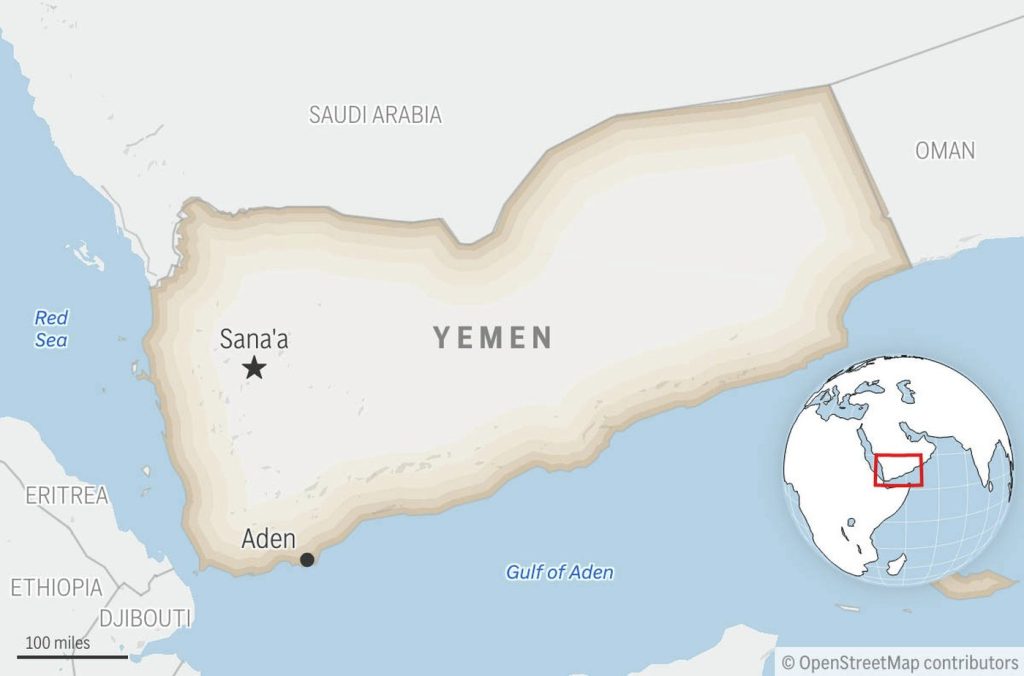DUBAI, United Arab Emirates (AP) — Crew members aboard the Liberian-flagged bulk carrier Magic Seas abandoned their vessel on Sunday night after it was set ablaze by a series of attacks while taking on water. This incident marks a significant escalation in regional tensions, particularly following a monthslong campaign by Yemen's Houthi rebels targeting shipping routes in the Red Sea.
The attack on the Greek-owned Magic Seas is suspected to have been carried out by the Houthis, especially after a security firm indicated that bomb-carrying drone boats struck the vessel following an initial assault using small arms and rocket-propelled grenades. While the Houthis’ media reported on the incident, they have yet to officially claim responsibility, a process that can take hours or even days.
A renewed offensive by the Houthis against maritime traffic could potentially trigger a response from U.S. and Western forces in the region, given the historical context of previous U.S. airstrikes targeting the rebels. As tensions mount, Israel's military issued a warning regarding three Houthi-held ports, indicating impending airstrikes in Hodeidah, Ras Isa, and Salif, which included the Ras al-Khatib power station.
This incident occurs during a precarious period in the Middle East, as discussions about a potential ceasefire in the ongoing Israel-Hamas conflict remain fragile. Additionally, Iran is contemplating whether to restart negotiations concerning its nuclear program amidst ongoing military tensions with the U.S. and Israel.
According to Mohammad al-Basha, a Yemen analyst, the attack likely demonstrates the Houthis' readiness and capability to target strategic maritime assets irrespective of ongoing diplomatic efforts. Initial reports suggested that the situation was actively evolving as armed security personnel aboard the Magic Seas retaliated against the initial assault while located approximately 100 kilometers southwest of Hodeida.
Private maritime security firm Ambrey confirmed that the vessel was attacked by eight skiffs and additional bomb-carrying drone boats, which could signal a major escalation in tactics utilized by the Houthis. The UK Maritime Trade Operations center reported the ship taking on water before its crew ultimately abandoned the vessel to ensure their safety.
The U.S. Navy’s 5th Fleet acknowledged awareness of the incident but provided no additional details, deferring inquiries to military Central Command. Yemen's information minister, Moammar al-Eryani, identified the attacked vessel as the Magic Seas and attributed responsibility to the Houthis, who allegedly had knowledge of the armed security presence on board before conducting the attack.
The Houthi rebels have previously launched several missile and drone operations against maritime vessels, which they claim are part of a concerted effort to confront Israel’s military actions in Gaza. Their al-Masirah news channel confirmed the attack but refrained from providing further commentary, coinciding with a speech from their leader, Abdul Malik al-Houthi. Ambrey further noted that the target met the expected Houthi profile.
From November 2023 through January 2025, the Houthis conducted over 100 attacks against commercial vessels, resulting in the sinking of two ships and the loss of four sailors' lives, significantly hampering trade flow through the critical Red Sea corridor, valued at approximately $1 trillion annually. After a period of self-imposed ceasefire, disrupted by U.S. aerial assaults against them in mid-March, Houthi activities remained limited, though they did launch missile strikes at Israel.
The maritime security landscape is further complicated by the ongoing Yemeni war, which remains at a stalemate as the Houthis and Yemen’s exiled government continue their struggle for control. The possibility of piracy in the region, historically led by Somali groups, has also been noted; however, those instances have not involved the use of drone boats.
Overall, this attack represents a potential turning point in how regional conflicts could escalate, particularly as maritime trade routes remain under threat from both state and non-state actors in a volatile geopolitical environment.












